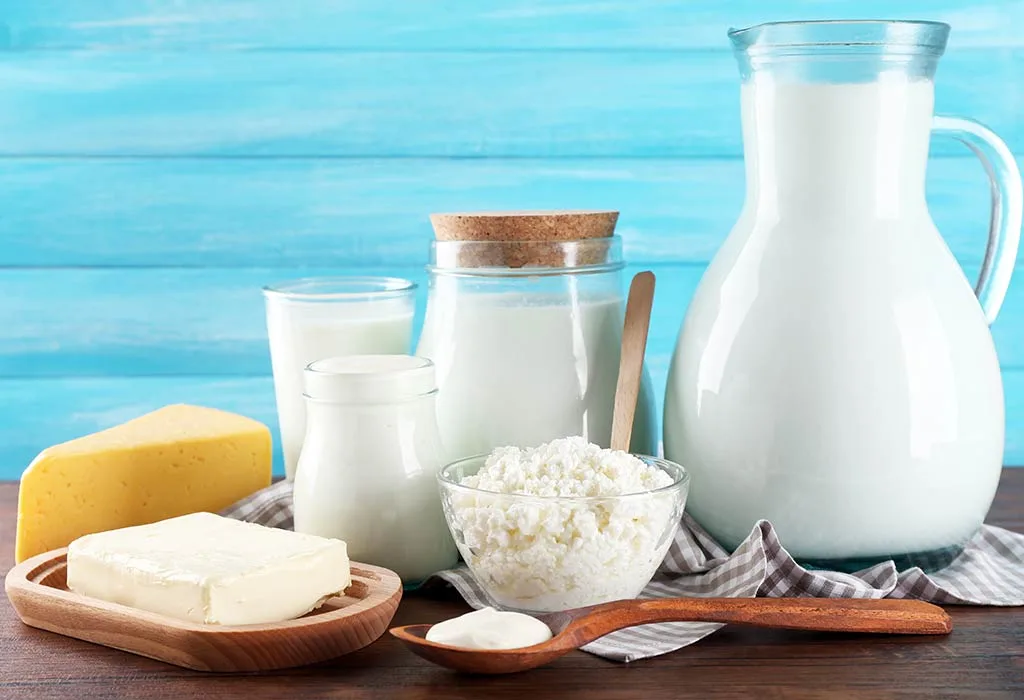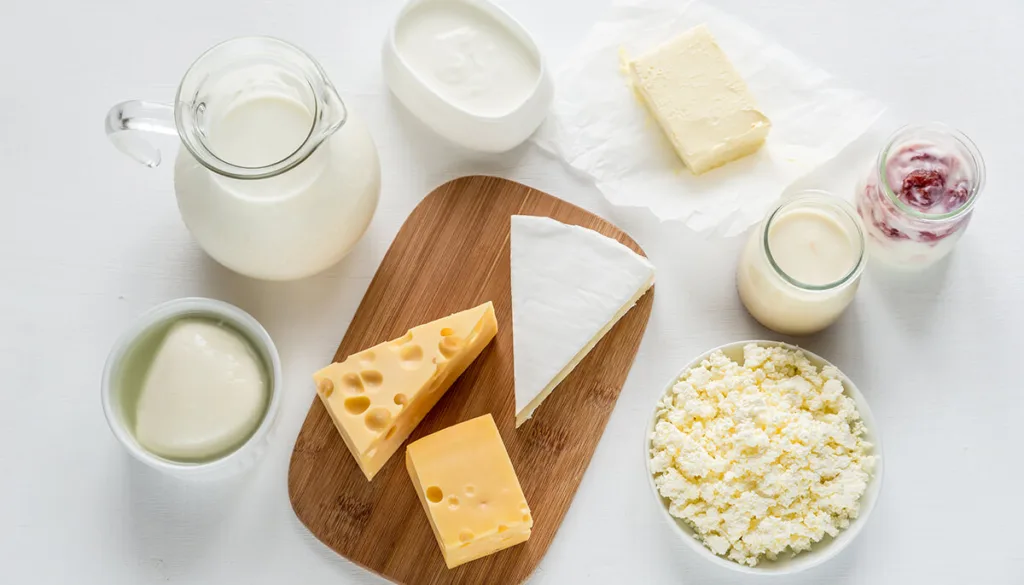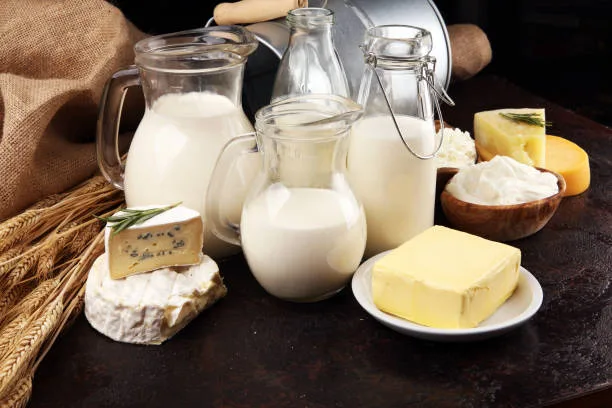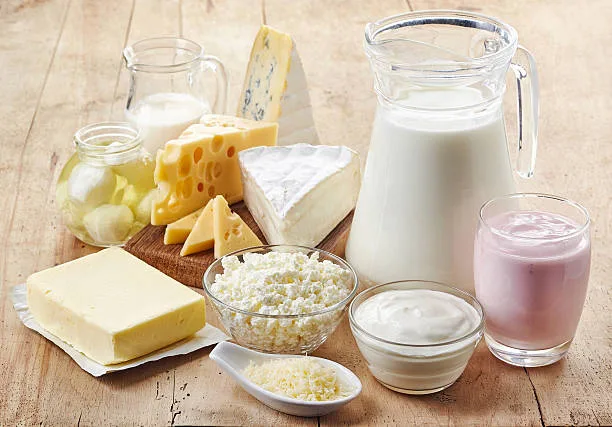An astounding 71% of American adults are overweight or obese. With rising rates of obesity and related health conditions, finding ways to lose weight and keep it off has become a priority for many. Could the solution be hiding in your refrigerator? Emerging research suggests that dairy products may hold unique weight loss benefits that you shouldn’t ignore.
Introduction
Consumption of dairy products has plummeted over the past four decades, with milk intake dropping by over 40%. Coinciding with this decrease has been a significant rise in obesity rates. This is no mere coincidence. Dairy products contain nutrients and bioactive compounds that directly impact weight management. Let’s explore the fascinating connection between dairy and weight loss.
Thesis statement: Consuming dairy products in recommended amounts aids weight loss efforts through various nutritional mechanisms that regulate appetite, metabolism, fat breakdown, and gut health.

Benefits of Dairy in Weight Loss
Dairy products deliver a powerhouse combo of protein, calcium, probiotics, and other nutrients. Here’s how they promote weight loss:
Calcium, the superstar mineral in dairy foods, has several weight loss benefits. Higher calcium intake is linked to increased fat breakdown and inhibition of fat production and storage. It also suppresses levels of parathyroid hormone, which otherwise stimulates fat release from cells.
Calcium may reduce hunger levels by decreasing circulating calcitriol, a vitamin D metabolite that ups appetite. This effect is enhanced when calcium is consumed as part of protein-rich dairy foods. Research confirms that adequate calcium intake, particularly from dairy sources, supports weight loss and maintenance.
The high-quality protein in dairy foods regulates appetite by slowing digestion and promoting satiety. Just one serving delivers a hefty dose – about 8 grams in a cup of milk. The branched-chain amino acids in dairy protein enhance fat breakdown and preserve muscle mass when dieting. This assists in maintaining a favorable body composition.
Probiotics in yogurt feed our gut microbiome, which influences weight management. An imbalance in gut microbes is tied to obesity. Probiotics may aid weight loss by blocking dietary fat absorption, reducing fat cell growth, and decreasing inflammation.
Conjugated linoleic acid (CLA) in dairy fat has also been shown in some studies to modestly promote fat loss and lean muscle growth. However, research is mixed, with effectiveness varying based on the CLA isomer studied.

Types of Dairy Products for Weight Loss
Selecting the right dairy products is key to harnessing their weight loss powers. Here are the top choices:
Low-fat or fat-free milk packs the same amount of protein as full-fat, with less calories. Enjoy it straight up, in smoothies, oatmeal or soups. Go for unsweetened varieties to avoid added sugar. The calcium, vitamin D and potassium in milk support bone health, which can deteriorate during weight loss.
Plain Greek yogurt is strained to remove liquid whey, concentrating the protein. The tart tang makes it perfect for parfaits or smoothie bowls. Non-fat plain Greek yogurt provides the biggest protein punch, with nearly 20 grams per 6-ounce serving. This helps keep you feeling satisfied between meals.
Cottage cheese is rich in casein protein, which keeps you feeling full. Top salads with it instead of fatty dressings or cheese. Choose low-fat or nonfat varieties to cut calories. The soft curds make it perfect for blending into dips, spreads and smoothies.
Cheese can absolutely fit into a weight loss plan. Stick to 1-2 ounce portions of low-fat versions like mozzarella string cheese or a sprinkle of parmesan. Avoid deep fried or cheese-filled options.
Practical Tips for Including Dairy in Your Weight Loss Plan
To make dairy work for you, follow these pro tips:
- Pay attention to serving sizes. It’s easy to overeat calorie-dense cheese and full-fat milk. Measure out a precise 1-cup serving of milk or yogurt.
- Pair dairy with fiber-rich fruits, vegetables or whole grains to slow digestion. The fiber prevents blood sugar spikes.
- Substitute Greek yogurt for mayo or sour cream as a creamy, protein-packed alternative. This works great in dips, dressings, tuna salad and more.
- Try smoothies with milk or yogurt instead of juice. The protein and nutrients will keep you fuller for hours versus juice sugar highs and crashes.
- Enjoy a bedtime snack of cottage cheese and fruit to support muscle recovery after exercise. Casein protein provides a slow sustained protein feed ideal before bed.
- Buy single serve yogurts or portion out cheese servings to avoid overeating. Pre-portioning makes grabbing a quick snack easier.
- Top salads with plain yogurt instead of fatty dressings for a slimming switch. Mix in herbs and lemon juice for flavor. The thicker consistency coats greens well.

Addressing Dairy Myths and Concerns
Despite its benefits, dairy gets a bad rap. Let’s clear up some misconceptions:
Myth: Dairy causes heart disease and high cholesterol. Fact: Research shows dairy has a neutral or beneficial effect on cholesterol levels. Full-fat dairy may protect against heart disease.
Myth: Most adults are lactose intolerant. Fact: Only 30-50% of adults can’t digest lactose. Lactose-free milk and hard, aged cheese is usually well tolerated.
Myth: Dairy causes inflammation. Fact: Dairy has anti-inflammatory properties. Fermented dairy like yogurt may lower inflammatory markers.
Concern: Dairy allergies are common. Fact: True cow milk allergy affects under 0.5% of adults. Lactose intolerance is often confused with a milk allergy.
Precautions and Allergies
Some precautions apply. As with any food, watch for signs of allergies or sensitivity like bloating, gas or digestive discomfort after eating dairy. Individuals with lactose intolerance can often handle modest amounts of dairy. Lactose-free milk, yogurt and hard cheeses are usually tolerated. Those with a verified milk protein allergy must avoid dairy completely. Consult an allergist and dietitian.
Health Benefits Beyond Weight Loss
While dairy provides clear advantages for weight management, its health benefits extend further:
- Builds strong bones: Dairy is the top source of bone-building calcium and vitamin D. These nutrients help prevent osteoporosis.
- Reduces blood pressure: Low-fat dairy lowers blood pressure slightly but significantly. The combo of calcium, potassium and magnesium is thought to be responsible.
- Decreases diabetes risk: Higher dairy consumption is linked to reduced risk of metabolic syndrome and type 2 diabetes. The protein, vitamin D and minerals likely play a role.
- Protects dental health: Milk is an excellent source of cavity-fighting calcium. Cheese increases pH in the mouth, reducing erosion and tooth decay.
- Supports muscle growth: The high-quality protein stimulates muscle protein synthesis, aiding recovery after exercise and slowing age-related muscle loss.

Conclusion
Current research clearly demonstrates unique weight loss advantages linked to dairy foods like milk, yogurt and cheese. Their protein, calcium, probiotics and other nutrients influence appetite, fat breakdown, body composition and metabolic health in weight-supportive ways. Including fat-free or low-fat dairy products as part of a balanced, calorie-controlled diet can be an effective strategy for both losing and maintaining weight. With a sensible approach, most people can incorporate moderate amounts of quality dairy foods into their regimen and unlock their weight loss boosting potential.
Join Us!
For the latest, guidance on eating well and improving health, subscribe to our FREE newsletter. With weekly wellness tips, nutrition advice, healthy recipes and more, it’s a fabulous free resource for optimizing your diet. Better health is within reach – click below to subscribe now!
Thank you for reading this post, don't forget to subscribe to our free newsletter
!
